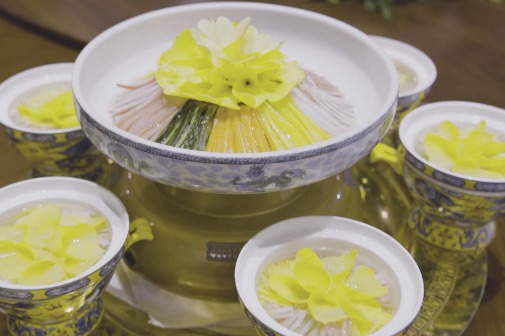Community care center a salve for Donghu elders


Pairs of old and young play table tennis, and a father teaches his daughter play badminton. Several seniors sit on the nearby benches, sunbathing.
It's a common scene of the playground in front of the Party Service Center of Donghu community, or East Lake community, in Kashgar, Northwest China's Xinjiang Uygur autonomous region.
The community has successfully established the pioneering community-based elderly care via the service center. A harmonious blend of six ethnic groups, Hui, Tajik, Kazak, Mongolian, Uygur, and Han, reside together in the Donghu community, totaling 2,600 households and 6,201 residents.

The service center offers day care facilities, cultural spaces such as a dancing room, music room, and board game room, so the neighboring elderly can enjoy a diverse range of leisure options. They can also have nutritional meals in a canteen, a regular health checkup and psychiatric consulting.
"Our sincerity is the biggest appeal to the elderly, who like to participate in colorful activities," says Zhang Xiaozhen, director of the residents' committee of Donghu community.
Wei Fang, 42, associate professor at School of Music and Dance, Kashi University, comes to the service center regularly with her students to perform for the local residents.

"I've learned a lot from the ethnic group's elderly, who excel in local dancing. Such activities infuse the community with vitality," she says.
The community also focuses on the growth and education of children, providing them with care and education. For example, they can practice calligraphy in a classroom. Residents who become volunteers in the service center can earn cumulative points and exchange these points for daily necessities.
Gong Yukun, 58, often takes her 3-year-old grandson to play in the center's indoor playground for children. "Community-based elderly care is very convenient, and I can also socialize with people of different ethnic groups, who are my age," she says.
Xerzat Abduwali, 13, and his 10-year-old brother Erxat Abduwali play table tennis with each other about three hours every day on the playground. Their biggest wish is to become professional table tennis players.

"If community-based elderly care becomes popular, it can ease the burden on the younger generation, which is busy at work, concentrating on building a career," says Wang Xiuzhen, 75, who was born and raised in Xinjiang.
Every morning, she plays table tennis with her 76-year-old husband for an hour and a half to get some exercise. "Playing table tennis is a hobby that I developed when I was young. Now, I have plenty of time to play and it keeps me healthy," she says.




































